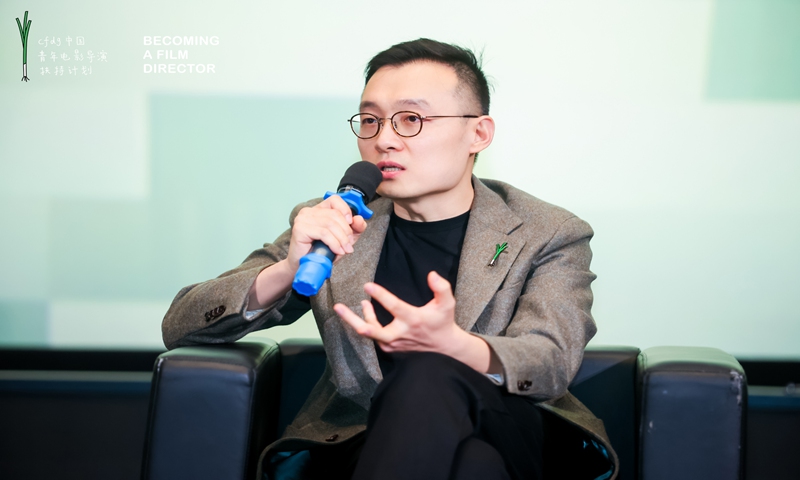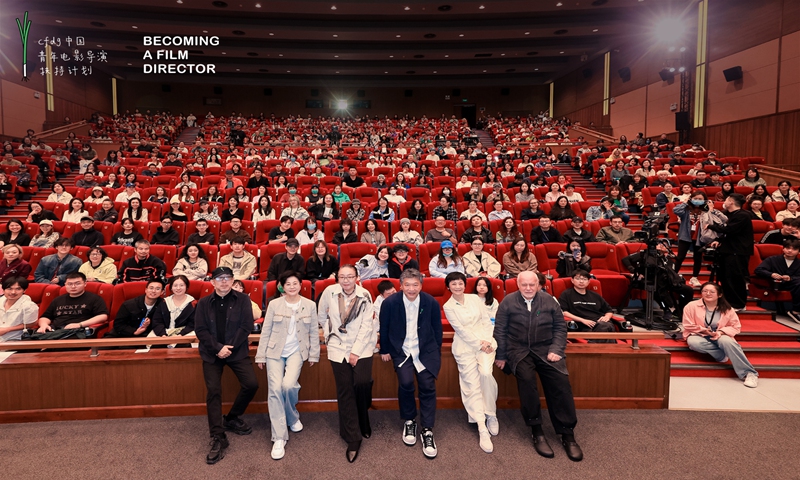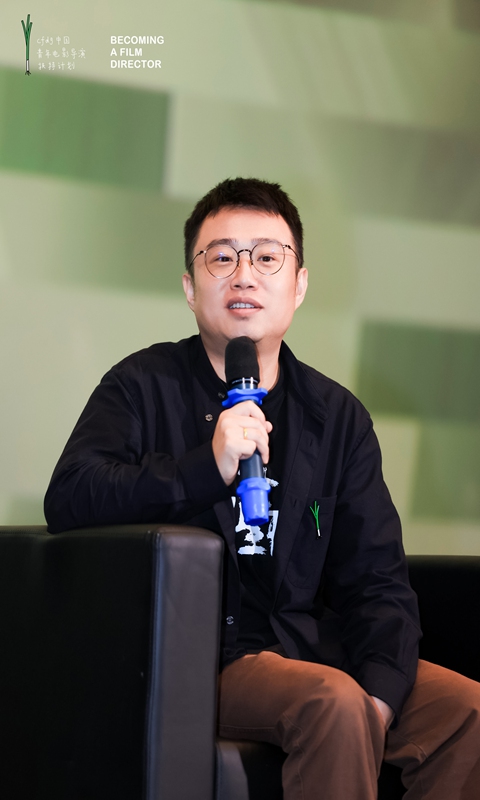ARTS / CULTURE & LEISURE
New faces of Chinese film to change industry

Illustration: Chen Xia/GT
"I have noticed that the new generation of Chinese film directors are growing stronger with increasingly diverse creation styles. More talents who can give consideration to both artistic expression and commercial factors have come to the forefront," Gao Peng, an emerging film director whose maiden narrative film work reaped a major reward at the 36th Tokyo International Film Festival with its visual presentation, told the Global Times on Monday.Playing a crucial role in preserving and advancing the art of cinema, young filmmakers are being recognized as the driving force of innovation in the industry.
Over the years, China's substantial investments in cultivating the integrative skills - especially the creative capabilities - of new directors, from policies to projects, have yielded impressive results.
The robust emergence of new talent in Chinese cinema has injected fresh vitality into the industry, delivering a wealth of culturally significant works to Chinese audiences.

Chinese director Gao Peng Photo: Courtesy of the CFDG Young Chinese Filmmakers Support Program
Gao and his narrative film A Long Shot have garnered significant attention at a number of domestic and international film festivals, including the Beijing International Film Festival and the Tokyo International Film Festival.
In the official award speech for Best Artistic Contribution in the main competition in Tokyo, he noted that the film strikes an impressive balance between commercial appeal and artistic integrity. Its cinematography and the atmosphere created through its settings captivated both the judges and the audience alike.
The film centers on the experience of Gu Xuebing, a retired shooting athlete who then serves as a security officer at a factory in Northeast China.
The main storyline of the work follows Gu's endeavors to steer away the son of a woman he cares about from crime. The potholes on the roads, as well as the buildings and furniture seen in scenes set the tone of the film, bringing audiences back to the China of the 1980s.
The inspiration for the film stemmed from the director's personal observations and reflections.
With its story unfolding in Northeast China, the film is a representative of the "Dongbei (Northeast China) Renaissance," a movement which highlights the region's emergence at the forefront of Chinese pop culture.
"I think what led to the trend of the Dongbei Renaissance is that the post-1980 generation has reached a stage where they are mature enough to express themselves through creations," Gao noted. He pointed out that this generation of creators seek inspiration in their memories, discovering the shining parts of the region's stories.
The new generation of Chinese directors is increasingly focused on discovering their unique styles, infusing their work with personal perspectives, even within the established frameworks of various film genres.
To facilitate a smoother exploration for these younger directors, a growing number of non-profit training programs have been launched in China in recent years. These projects aim to enhance directors' comprehensive skills, including scriptwriting and overall project planning.
The CFDG Young Chinese Filmmakers Support Program "Young Shoots," sponsored by the China Film Director's Guild, is one of these projects. The program's guiding principle is "inter-generational dialogue," with master classes and film screenings inviting veteran filmmakers and pioneers of the profession to share the core ideas and techniques in the art of film with young film directors.

Guests of opening ceremony of the 2024 Young Shoots master class and film screening program Photo: Courtesy of the CFDG Young Chinese Filmmakers Support Program
The 2024 Young Shoots master class and film screening program "Becoming a Director-Reality and Fiction in Film" kicked off on Friday in Beijing, gathering a group of veteran and renowned directors such as Li Shaohong and Japanese director Hirokazu Koreeda to communicate with emerging creators face to face and give their advice from an international perspective.
Gao reflected on his experience in the program, describing it as a school for emerging directors. He noted that it not only taught them how to create exceptional films but also provided a platform for collaboration, fostering a community that encourages stronger creative endeavors.
Long Lingyun, another emerging Chinese director, was recruited into the program after undergoing rigorous evaluation. He ultimately completed a high-quality film titled Growing Apart, which explores family relationships.

Chinese director Long Lingyun Photo: Courtesy of the CFDG Young Chinese Filmmakers Support Program
Long told the Global Times on Monday that he was captivated by the professional lessons covering various fields related to film production and decided to apply for a chance to join the program.
In 2023, Long made his debut on the red carpet of the Cannes Film Festival with his film, receiving widespread acclaim from international audiences who grasped the messages he aimed to convey through his work.
Younger Chinese directors such as Gao and Long often engage in self-reflection during the creative process. Drawing on the experiences and strengths of veteran directors as points of reference, they recognize that what they need most is an enhanced ability to observe their surroundings, and meanwhile, they also have a clearer sense of where their future path lies.
The author is a reporter with the Global Times. life@globaltimes.com.cn



